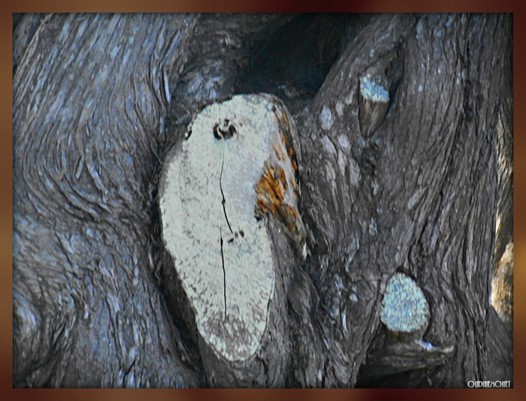
Take another look at previously featured poems
We love the poems we have already shared, but if you think there is a poem we should include we'd love to hear it. Please send us your suggestions and tell us why they mean so much to you, you might even want to record yourself reading one.
Wendell Berry has written many poems that communicate his deep love for the natural world, and the solace he finds there. In this poem he describes what happens when he ‘goes among trees’, which is not so different from what happens when we are mindful or take time to meditate.
We sit down, we make peace with not attending to any of the things on our to-do list and our mind settles. And then, sooner or later, often stuff surfaces that we hadn’t attended to yet – ‘what I am afraid of comes’. Some unexpected feeling, an uncomfortable thought, sensations that we'd rather not experience… followed by that momentary impulse to get up and do something ‘useful’, the temptation to get lost in thought or drift off. But for me, when I manage to stay, to ‘live for a while in its sight’, something shifts or changes. What does this poem touch upon for you? Do you have a fear you are avoiding?
A Timbered Choir by Wendell Berry
(an excerpt)
I go among trees and sit still.
All my stirring becomes quiet
around me like circles on water.
My tasks lie in their places
where I left them, asleep like cattle.
Then what is afraid of me comes
and lives a while in my sight.
What it fears in me leaves me,
and the fear of me leaves it.
It sings, and I hear its song.
Then what I am afraid of comes.
I live for a while in its sight.
What I fear in it leaves it,
and the fear of it leaves me.
It sings, and I hear its song.
This simple stanza comes from Rumi, the 13th century mystic and poet. It invites us to come together, at a time when the world appears to be paying more attention to our differences than what we have in common.
This poem feels familiar, the adults give their attention to a world they can control, in the form of a puzzle, where there is a place for every piece, "backs turned for a few hours to a world that is crumbling..."while youth is "impatient with her blossoming".
Have you ever simply wanted to focus all your attention here, on a game, a film, a book, a poem; where it's simple and you know what it is and what to do, rather than continue looking at all the difficulty around you? Is it wrong to take a break? or do we see the world with new perspective when we stop looking directly at the problem and move our focus to the periphery?
We put the puzzle together piece
by piece, loving how one curved
notch fits so sweetly with another.
A yellow smudge becomes
the brush of a broom, and two blue arms
fill in the last of the sky.
We patch together porch swings and autumn
trees, matching gold to gold. We hold
the eyes of deer in our palms, a pair
of brown shoes. We do this as the child
circles her room, impatient
with her blossoming, tired
of the neat house, the made bed,
the good food. We let her brood
as we shuffle through the pieces,
setting each one into place with a satisfied
tap, our backs turned for a few hours
to a world that is crumbling, a sky
that is falling, the pieces
we are required to return to.
By Roger Keyes
Hokusai says look carefully.
He says pay attention, notice.
He says keep looking, stay curious.
He says there is no end to seeing.
He says look forward to getting old.
He says keep changing,
you just get more who you really are.
He says get stuck, accept it, repeat
yourself as long as it is interesting.
He says keep doing what you love.
He says keep praying.
He says everyone of us is a child,
everyone of us is ancient,
everyone of us has a body.
He says everyone of us is frightened.
He says everyone of us has to find
a way to live with fear.
He says everything is alive–
shells, buildings, people, fish,
mountains, trees, wood is alive.
Water is alive.
Everything has its own life.
Everything lives inside us.
He says live with the world inside you.
He says it doesn’t matter if you draw,
or write books. It doesn’t matter
if you saw wood, or catch fish.
It doesn’t matter if you sit at home
and stare at the ants on your veranda
or the shadows of the trees
and grasses in your garden.
It matters that you care.
It matters that you feel.
It matters that you notice.
It matters that life lives through you.
Contentment is life living through you.
Joy is life living through you.
Satisfaction and strength
is life living through you.
He says don’t be afraid.
Don’t be afraid.
Love, feel, let life take you by the hand.
Let life live through you.
In this poem Mary Oliver challenges how we rewrite the world to be more palatable. Do we avoid looking at the difficulty of life or feel obliged to make things prettier? How would it be to accept and embrace it all?


Singapore By Mary Oliver
In Singapore, in the airport,
a darkness was ripped from my eyes.
In the women’s restroom, one compartment stood open.
A woman knelt there, washing something in the white bowl.
Disgust argued in my stomach
and I felt, in my pocket, for my ticket.
A poem should always have birds in it.
Kingfishers, say, with their bold eyes and gaudy wings.
Rivers are pleasant, and of course trees.
A waterfall, or if that’s not possible, a fountain rising and falling.
A person wants to stand in a happy place, in a poem.
When the woman turned I could not answer her face.
Her beauty and her embarrassment struggled together, and neither could win.
She smiled and I smiled. What kind of nonsense is this?
Everybody needs a job.
Yes, a person wants to stand in a happy place, in a poem.
But first we must watch her as she stares down at her labor, which is dull enough.
She is washing the tops of the airport ashtrays, as big as hubcaps, with a blue rag.
Her small hands turn the metal, scrubbing and rinsing.
She does not work slowly, nor quickly, like a river.
Her dark hair is like the wing of a bird.
I don’t doubt for a moment that she loves her life.
And I want her to rise up from the crust and the slop and fly down to the river.
This probably won’t happen.
But maybe it will.
If the world were only pain and logic, who would want it?
Of course, it isn’t.
Neither do I mean anything miraculous, but only
the light that can shine out of a life. I mean
the way she unfolded and refolded the blue cloth,
the way her smile was only for my sake; I mean
the way this poem is filled with trees, and birds.
